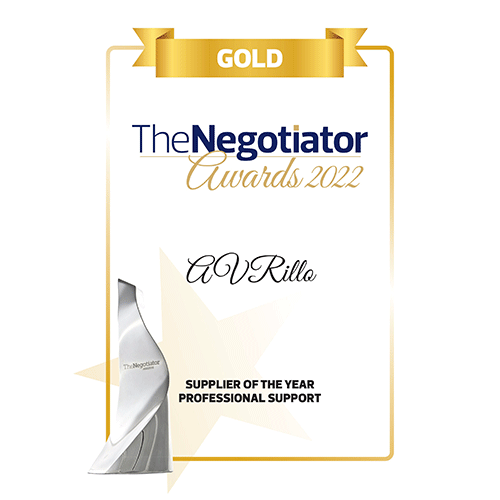

and start saving money now
and start saving money now
Get a FREE Conveyancing Quote
Best Conveyancing Lawyer in Stourbridge, Worcestershire
A conveyance solicitor can make the process of selling your home a less stressful one. They will guide you through every step and provide valuable information about how best to sell or buy a property in today's market while ensuring that everything goes according to law and be ethically right from both sides- seller and the buyer. That is why you need to find a trusted conveyancer with an excellent reputation and experience.
If you live in Stourbridge and need help with your property transfer needs or other services, then give us a call! Our services include equity release, transfer of a property, remortgaging, advice for first-time homebuyers, commercial conveyancing, stamp duty advice, and lease extension.
Reasons Why You Should Choose Us in Stourbridge Worcestershire
 You Will Get Value for MoneyWhen purchasing property in Stourbridge, Worcestershire, you should seek to save money while getting good value for your money. We have a team of lawyers who are there for you every step of the way through buying a home in Stourbridge, Worcestershire.
You Will Get Value for MoneyWhen purchasing property in Stourbridge, Worcestershire, you should seek to save money while getting good value for your money. We have a team of lawyers who are there for you every step of the way through buying a home in Stourbridge, Worcestershire.
Our team will examine all of the problems in the contract and guarantee that the home you're about to buy is worth the money. Our group of real estate agents ensures that you receive the greatest property bargains in Stourbridge, Worcestershire and leave with a grin on your face. Breadth of KnowledgeYou'll also have the benefit of our large team of legal specialists, who can assist if complicating factors arise or if additional legal services are required in a variety of areas. We try to establish a long-term relationship with our clients so that you may always count on our trusted advisors to help you tackle the legal concerns life may present you with.
Breadth of KnowledgeYou'll also have the benefit of our large team of legal specialists, who can assist if complicating factors arise or if additional legal services are required in a variety of areas. We try to establish a long-term relationship with our clients so that you may always count on our trusted advisors to help you tackle the legal concerns life may present you with. No Upfront CostsAnother advantage of hiring our services is that we do not require you to make any upfront payments. When you call for solicitor services, our team of estate agents will start working on your property transfer right away. When you contact us, we offer you a free conveyancing estimate.
No Upfront CostsAnother advantage of hiring our services is that we do not require you to make any upfront payments. When you call for solicitor services, our team of estate agents will start working on your property transfer right away. When you contact us, we offer you a free conveyancing estimate. Speedy ServiceWe've built a solid reputation for delivering our clients with unparalleled speed. While the precise time frame for your papers may vary, we aim to complete the conveyancing process in 6 to 8 weeks during the initial stage.
Speedy ServiceWe've built a solid reputation for delivering our clients with unparalleled speed. While the precise time frame for your papers may vary, we aim to complete the conveyancing process in 6 to 8 weeks during the initial stage.
We keep you up to speed on the status of your paperwork at all times, whether you're working with us online or by phone. We also offer regular updates through our online case tracking tool, which ensures that you are regularly informed of the progress of your documents. Our Values Are ClearWe've taken the time to define and publicize our core principles. Creating and maintaining a culture that meets or exceeds expectations ensures that customers know exactly what they will get from us consistently.
Our Values Are ClearWe've taken the time to define and publicize our core principles. Creating and maintaining a culture that meets or exceeds expectations ensures that customers know exactly what they will get from us consistently. There Is a Fixed Price GuaranteeThere are no hourly or letter charges to worry about. Before you begin, you'll know exactly how much everything will cost from the quotation we will give you, including searches and any other charges.
There Is a Fixed Price GuaranteeThere are no hourly or letter charges to worry about. Before you begin, you'll know exactly how much everything will cost from the quotation we will give you, including searches and any other charges. We'll Make Your Relocation as Stress-Free as PossibleMoving house is one of the most difficult events in many people's lives. Make certain you choose a conveyancing lawyer for your property sale or purchase that makes you feel confident that the transaction will be as smooth as possible.
We'll Make Your Relocation as Stress-Free as PossibleMoving house is one of the most difficult events in many people's lives. Make certain you choose a conveyancing lawyer for your property sale or purchase that makes you feel confident that the transaction will be as smooth as possible.
AVRillo Conveyancers are friendly, approachable, and have an excellent reputation. To guarantee that your transaction goes on without a hitch, experienced property lawyers use the most up-to-date technology. Because our property lawyers cover the entire process from start to finish, we are able to take satisfaction in ensuring that your property transaction and relocation go smoothly.
Recent Reviews
Frequently Asked Questions About Conveyancing in Stourbridge, Worcestershire
What Is Conveyancing?
Simply put, it’s the legal term for the procedure of transferring land and any structures erected on it from one owner to another. It covers sales, purchases, and lease grants.
What Are the Conveyancing Fees For First-Time Buyers?
The conveyancing costs are the same whether you’re a first-time buyer or have owned a property before. However, if you’re buying your first home, there are no concessions or penalties for you.
It is important to note that there may be extra costs if you’re purchasing a house with money from a Help to Buy ISA or through a shared ownership plan.
Do I Have to Pay Conveyancing Fees Upfront?
Typically, your conveyancer will require a deposit of around 10 percent. This compensates for some of the expenditures, such as searches, ID checks, and obtaining office copies from the Land Registry.
So, you’re not required to pay anything else until you exchange contracts if you are the buyer, or the sale is complete if you are the seller.
Why Should I Hire a Conveyancer?
Purchasing or selling a property is one of the most significant financial transactions you will ever make. The consequences of making a mistake in this area may be both pricey and unpleasant, owing to the financial and legal factors involved with transferring property. A qualified conveyancer can assist in safeguarding your assets by handling your property transfer.
In addition, a competent solicitor is well-versed in the law governing property deals and is legally obligated to maintain professional indemnity insurance, allowing them to share their expertise on other areas connected to your property transaction that may come up.
What Are Searches, And How Do They Work?
Searches are done on several statutory authorities in the course of an inquiry. If you’re taking out a mortgage to purchase property, your lender will demand that numerous inspections be completed before it will advance any money.
Even if you aren’t taking a mortgage, we strongly encourage you to do your own searches since once you buy the house, you will be bound by any issues that affect it and would have been uncovered by those searches whether or not you were aware of them.
The following are examples of common searches we may conduct:
Water Authority Search
This is investigated by your local water and drainage firm, which will reveal if the property is connected to mains water supply and drains and whether a water meter has been installed.
Perhaps more significantly, it will show whether any main sewers run adjacent to the property or through the garden because if they do, it may have an impact on what you’re able to accomplish with extensions and garden planting.
Bankruptcy Search
If you take out a mortgage, the lender will want to ensure that we can confirm that you aren’t bankrupt and that you aren’t going through bankruptcy proceedings. The lender will check if you have declared bankruptcy, and if so, they’ll want proof that it’s been dismissed.
Environment Search
This search finds any environmental issues that may endanger the property, such as potential flood risks, landfill sites, potentially polluting businesses in the region, and so on.
Local Authority Search
This is accomplished with the local Council and includes details such as whether the home is classified as a listed building and any planned road or traffic projects in the region. It also checks if it’s in a conservation area, whether there are any violations of planning permission, whether planning permission has previously been granted for extensions and modifications, and whether the property is vulnerable to radon gas.
Land Registry Search
This is done to ensure that no one has registered a claim against the property between the seller’s lawyers delivering copies of the title and the exchange of contracts date.
It also helps in preventing any new land registrations from being recorded for a number of weeks, making it impossible to register anything unfavorable to the buyer.
Do I Need to Have a Survey on the Property?
If you’re taking out a mortgage, your lender will want a valuation, which isn’t a survey and is done for the lender’s benefit rather than yours. It’s usually a good idea to conduct your own survey. Your lawyer may suggest a competent local surveyor.
Do I Have Any Chance of Getting Back at My Seller Once I've Gotten Settled In?
No, unless you have an exceptional circumstance. You will be responsible if things don’t go as planned. Therefore, before agreeing to exchange contracts, ensure that all appliances, central heating systems, and other infrastructure are in good functioning order. It’s possible that you may be eligible for compensation if property damage has been done. If the seller leaves furniture or trash on the premises, he violates the contract since “vacant possession” hasn’t been given.
When Do I Need to Get Insurance on The Property?
Typically, a contract will offer you the option to purchase insurance on the spot after the exchange of contracts. It’s a good idea to compare rates on buildings and contents insurance, as well as find recommendations from your solicitor during the period before completion.
Why I'm I Required to Submit Documentation of Identification?
This is because all solicitors are required by law to verify the identities of their customers to prevent mortgage fraud and money laundering.
What Is a Lease Extension?
A lease extension is a legal agreement that extends the terms of an existing commercial or residential lease between tenants and landlords. Leasehold properties are generally flats, although they may also be houses.
How Long Does My Lease Extension Take?
The entire leasehold extension procedure may take anywhere from three to twelve months, but with the aid of conveyancers and professional valuers, this time can be reduced drastically.
We're Unmarried, And I'm Putting a Larger Deposit Down on The House; Can I Guarantee It?
Yes. You may establish a trust deed, which is a legal document, to keep track of who paid what and what would happen if the property was sold or you divorced.
Who Informs the Authorities That I'm The New Owner Of A House?
Upon settlement, the Council, water providers, and the Valuer-General are immediately notified of the transaction when your transfer papers are submitted for registration. However, various third parties service providers will need to be notified.
Is It Possible to Avoid Inheritance Tax?
If you’re purchasing a house together with someone else, legal arrangements can be made so that each of you benefits from inheritance tax exemption, which may help avoid paying taxes on the property’s worth when you die. Contact your lawyer about a “nil rate band discretionary trust.”
Do I Have to Pay Capital Gains Tax?
No. If the house you occupy as your primary residence is sold, you are not subject to Capital Gains Tax. You may choose which property receives the exemption if you own more than one home.
When Will I Get the Keys to My New Home?
On completion, you will be granted access to your new home. You’ll move out of your old house as a seller and receive the keys to your new residence from your conveyancer as a buyer.
How Long Should It Take Between the Exchange of Contracts and The Completion Date?
This depends entirely on the parties’ negotiations, which can range from simultaneous to many months apart. It should be long enough for the parties to negotiate practical arrangements, and it is generally a minimum of two weeks.
Do I Need a Conveyancer for a Remortgage?
A conveyancer is someone who helps you buy or sell the property by completing all of the legal paperwork, arranging inspections, and ensuring that all rules are followed.
What Should the Initial Steps Be When Moving into My New House?
There are a number of things to consider, such as having mail redirected as soon as possible and changing your driving license to match your new address. Also, take meter readings and notify all utility providers.
- 24 / 7 Online Tracking
- Call Surgery
- Online Payment
- Quote App
- Our Team & Careers
- Conveyancing Today
- Get in touch
- Cheap conveyancing solicitors
- Online conveyancing quote
- Find a conveyancing solicitor
- Solicitors for house buying
- Residential Conveyancing
- Property Conveyancing
- Solicitor Costs For Buying a House
- House Conveyancing
- Conveyancing Guide
- Conveyancing Solicitor
- Residential Solicitors
- Conveyancing




















